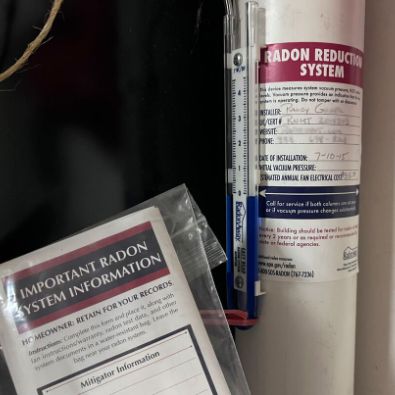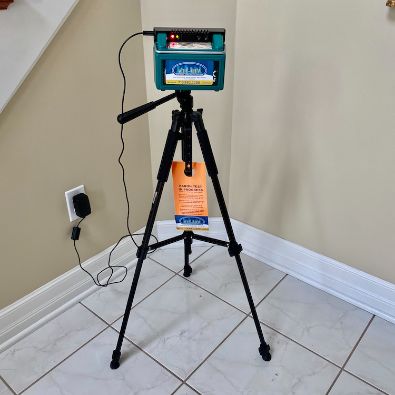Radon Testing & Inspection
Click Here For A Free Quote!Call Now! Schedule Your Radon Testing & Inspection 319-231-4026
The Importance of Radon Testing and Inspection in Highland Park, Iowa
Radon is a naturally occurring, odorless, and colorless gas that can be found in the soil and rocks beneath our homes. It is a known carcinogen and can cause serious health problems if it is not properly tested and inspected. That is why All Iowa Radon is dedicated to providing the residents of Highland Park, Iowa with the highest quality radon testing and inspection services. Radon is the second leading cause of lung cancer in the United States, and it is estimated that one in every 15 homes in the United States has elevated levels of radon. In Highland Park, Iowa, the average indoor radon level is 4.2 pCi/L, which is higher than the EPA’s recommended action level of 4.0 pCi/L. This means that it is important for homeowners in Highland Park to have their homes tested for radon. At All Iowa Radon, we use state-of-the-art equipment to test for radon levels in your home. We also provide radon mitigation services, which involve installing a system to reduce the levels of radon in your home. Our team of certified professionals is dedicated to providing you with the best possible service and ensuring that your home is safe from the dangers of radon. Radon testing and inspection is an important part of keeping your family safe and healthy. At All Iowa Radon, we are committed to providing the residents of Highland Park, Iowa with the highest quality radon testing and inspection services. Contact us today to learn more about our services and how we can help protect your family from the dangers of radon.


Highland Park is a small city located in the state of Iowa. It is located in the southeastern part of the state, just south of Des Moines. The population of Highland Park is just over 1,000 people, making it one of the smallest cities in Iowa. Highland Park is known for its small-town charm and friendly atmosphere.
Highland Park was founded in 1856 by a group of settlers from Scotland. The city was named after the highland region of Scotland, and many of the original settlers were of Scottish descent. The city was incorporated in 1875 and has remained a small, rural community ever since.
Highland Park is home to the oldest continuously operating school in Iowa. The school was founded in 1856 and is still in operation today. The school is known for its excellent academic programs and its commitment to providing a quality education to its students.
Highland Park is also home to the oldest continuously operating post office in Iowa. The post office was established in 1856 and is still in operation today. The post office is a popular destination for visitors to the city, as it is a reminder of the city's long history.
Highland Park is also home to the oldest continuously operating church in Iowa. The church was founded in 1856 and is still in operation today. The church is a popular destination for visitors to the city, as it is a reminder of the city's long history and its commitment to faith and community.
Highland Park is a great place to visit for those looking for a small-town atmosphere and a friendly community. The city is full of history and charm, and its residents are proud of their heritage and their commitment to providing a quality education and a safe and welcoming environment.
Local Radon Testing & Inspection Experts Call NOW! 319-231-4026



The History of Radon in Highland Park, Iowa
Highland Park, Iowa is a small town located in the northeast corner of the state. It has a population of just over 1,000 people and is known for its rural charm and friendly atmosphere. The town has a long history of radon exposure, dating back to the early 1900s.In the early 1900s, the town was home to a coal mine, which was the source of much of the radon in the area. The coal mine was closed in the 1930s, but the radon levels in the area remained high. In the 1950s, the town began to experience health problems related to radon exposure, including an increase in lung cancer cases.In the 1970s, the Environmental Protection Agency (EPA) began to take notice of the high levels of radon in Highland Park. The EPA conducted a study of the area and found that the radon levels were significantly higher than the national average. The EPA then began to take steps to reduce the radon levels in the area, including installing radon mitigation systems in homes and businesses.Today, the radon levels in Highland Park are much lower than they were in the past. The EPA continues to monitor the area and has implemented a number of measures to ensure that the radon levels remain low. The town has also taken steps to educate its residents about the dangers of radon exposure and how to protect themselves from it.Highland Park is a great example of how a community can work together to reduce the risks associated with radon exposure. The town has taken the necessary steps to ensure that its residents are safe and healthy, and it is a testament to the power of community action.Contact Us For A Free Quote!
Our team of experts is ready to provide you with personalized guidance and deliver exceptional results.
